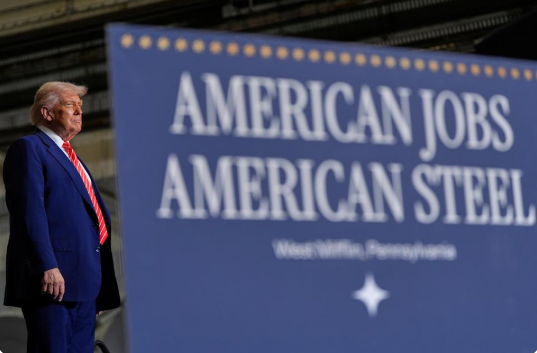Are President Trump's global tariffs of "vast economic and political significance"?
The answer could make or break the administration's chance to keep the president's "Liberation Day" tariffs in force as legal challengers try to undo them — especially if the dispute eventually reaches the Supreme Court.
The nation's highest court has made it clear in recent years that it is willing to apply a test known as the "major questions doctrine" to rein in the executive branch from usurping power vested in Congress.
That doctrine, solidified with the help of Trump's hand-picked conservative judges, limits the authority of federal agencies to take action on issues of "vast economic and political significance" except where Congress has explicitly authorized the action.
It got a formal nod from the high court in two cases that were decided against President Biden during his time in office. And now it could become a hurdle for the current president if the current lower court fight over Trump's duties reaches the Supreme Court as expected.

Last week, the US Court of International Trade in New York City struck down many of Trump's tariffs without directly applying the major questions doctrine, but on Thursday, the US Court of Appeals for the Federal Circuit in Washington, D.C., allowed Trump's duties to temporarily stay in place while legal arguments continue.
On Monday, the small businesses that initially challenged Trump's tariffs before the US Court of International Trade filed arguments with the trade saying the stay should be lifted. They reiterated a finding of the trade court, saying that "any interpretation" of IEEPA — the 1977 law Trump used to support his duties — "that delegates unlimited tariff authority is unconstitutional.
Judges considering the "major questions doctrine" will have to decide if any president can unilaterally levy import duties to address conditions that the president characterizes as a US emergency — as Trump has cited as justification for many of his duties.